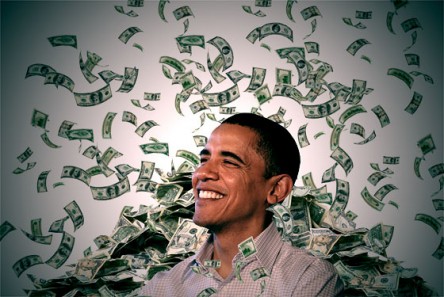(Repost)WEALTH REDISTRIBUTION – President Obama’s Weekly Address Saturday November 17, 2012

Redistribution of Wealth
Redistribution of wealth is the transfer of income, wealth or property from some individuals to others caused by a social mechanism such as taxation, monetary policies, welfare, charity, divorce or tort law. The desirability and effects of redistribution are actively debated on ethical and economic grounds.
Types of redistribution
Today, income redistribution occurs in some form in most democratic countries. In a progressive income tax system, a high income earner will pay a higher tax rate than a low income earner. The difference between the Gini index for an income
distribution before taxation and the Gini index after taxation is an indicator for the effects of such taxation.“Money is like muck, not good except it be spread.â€
—Francis Bacon, ‘Of seditions and Troubles’, Essays, 15.Property redistribution is a term applied to various policies involving taxation or nationalization of property, or of regulations ordering owners to make their property available to others. Public programs and policy measures involving redistribution of property include eminent domain, land reform, inheritance tax and certain provisions found in family law.
Two common types of governmental redistribution of wealth are subsidies and vouchers (such as food stamps). These “transfer payment” programs are funded through general taxation, but disproportionately benefit the poor, who pay fewer or no taxes. While the persons receiving redistributions from such programs may prefer to be directly given cash, these programs may be more palatable to society, as it gives society some measure of control over how the funds are spent.
Current policy illustration
Currently in the United States, any means-tested entitlement program can be considered a redistributive effort. This is because the US Government practices a progressive income tax that disproportionately yields public revenues from various earnings brackets. As the wealthy pay more into the system and the poor receive more marginal utility through programs such as TANF, Medicaid, FHA insured loans, and the earned income tax credit (all of which are means-tested), it could be argued that the United States has democratically opted for the redistribution of wealth. Each of these programs provide services or financial aid to the poor.
Source: en.wikipedia.org/wiki/Redistribution_of_wealth
“Every single day, the good people of this country work as hard as you can to meet your responsibilities. Those of us you sent to Washington are going to do the same.” —President Obama



